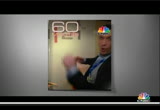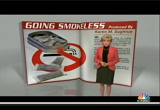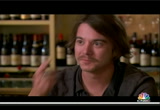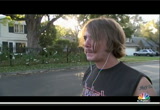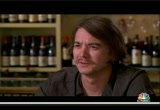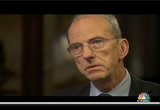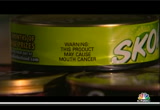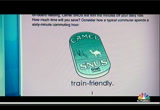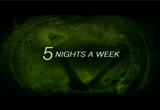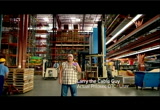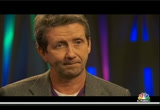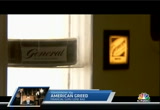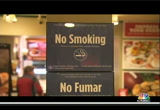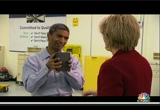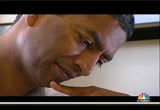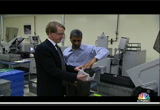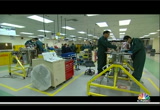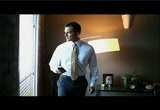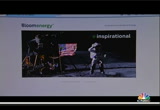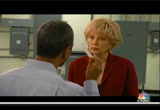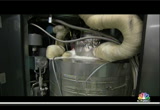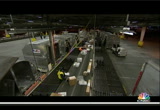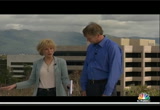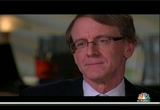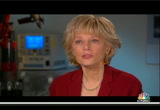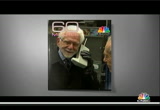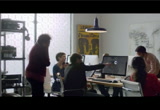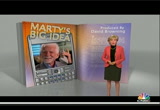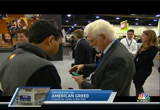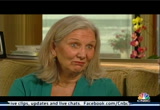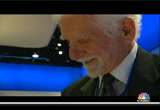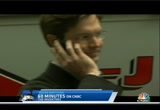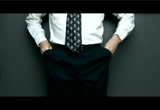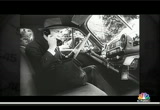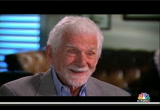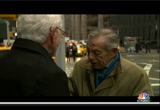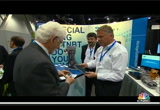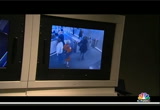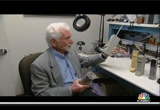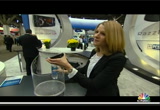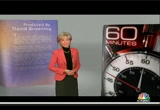tv 60 Minutes on CNBC CNBC December 23, 2012 11:00pm-12:00am EST
11:00 pm
the way it cleans. everything about the oral-b power brush is simply revolutionary. oral-b power brushes oscillate, rotate and even pulsate to gently loosen and break up that sticky plaque with more brush movements than manual brushes and even up to 50% more than leading sonic technology brushes for a superior clean. oral-b power brushes. go to oralb.com for the latest offers. [ticking] >> there's no spitting or anything, so no one knows you're doing it. >> he uses a product called snus, a big new idea in smokeless tobacco, and the tobacco companies are banking on it. >> thank you. >> it was started in sweden,
11:01 pm
where it's getting credit for helping people quit smoking, even though it keeps them addicted to nicotine what sweden has done is traded one addiction for another addiction. >> that's true. addiction is a problem, but it's less of a problem than lung cancer. [ticking] >> its inventor and investors say it will change the way we power our homes, bypassing the traditional electric grid. is the bloom box intended to get rid of the grid? >> the bloom box is intended to replace the grid for its customers. [ticking] >> let's say if you spilled something on it... >> marty cooper looks on all this with pride, amusement, and some dismay. >> when i throw this against the wall, you--ooh. >> and with good reason. he's the father of the cell phone. >> how do i remove? i know how to add a-- but say i want to remove that one. >> welcome to 60 minutes on cnbc. i'm lesley stahl. investors always hope to be on the ground floor of the next
11:02 pm
big thing. that's why venture capitalists risk fortunes developing new inventions and new products that sometimes transform how people live. we begin with snus. with cigarette sales falling, the smoking industry is going smokeless, introducing new tobacco products such as snus that are nothing like your granddaddy's chew or dip. companies like r.j. reynolds and phillip morris say this new generation of smokeless products helps tide smokers over when they go places they can't light up anymore because of smoking bans, like restaurants and offices. the smoking rate is half what it was 40 years ago. and as i discovered in april 2010, companies are investing heavily in developing smokeless and in changing its image from hillbilly to hip. think smokeless tobacco,
11:03 pm
and you probably conjure up something distinctly unappealing: a bulging mouthful of wet, brown goo that's smelly and spitty... [spitting sounds] brown and drooly. not anymore. now there's snus. >> there's no spitting or anything, so no one knows you're doing it. >> when he does it, when justin billings uses snus, he tucks it, a tiny teabag-like pouch filled with tobacco, discreetly under his upper lip. there's no lump in his cheek and no juice. >> do you snus in class? >> yeah, it's great. >> what do you mean, it's great? >> i can be in class, and instead of looking like, "oh, there's 40 minutes left in this class; i just want a cigarette," i can put the snus in and continue to pay attention and don't have to focus on the tobacco craving. >> snus curbs the craving as the nicotine absorbs into his gums. >> you want to smell it? >> yeah. billings is 31, a musician and college student
11:04 pm
in l.a., who has smoked since he was 16. >> kind of grassy. >> smells good to me. >> phillip morris and r.j. reynolds have been selling their brands of marlboro and camel snus for about a year. at $4 a can, about half what a pack of cigarettes usually costs, the company say sales show that snus is starting to catch on. >> i have a cigarette when i get up in the morning. >> here's justin at 7:00 a.m., smoking while he checks his email. he used to dread being stuck someplace where he couldn't feed his habit. now he's buzzed on nicotine practically 24/7. as he heads off to the gym, he pops in a snus. >> and i'll put the snus in. and instead of walking, i can jog to the gym because i'm not carrying a cigarette. you can't jog carrying a cigarette. and-- >> but you jog with the-- >> yeah, i jog with the snus in. >> and at the gym, he snuses while he's working out. >> and i feel really good
11:05 pm
and healthy and in shape. >> later at school, he lights up before class and snuses during class. at night, there's more snusing when he's out with friends at a bar. and unbeknownst to me, he was snusing throughout our interview at a smoke-free restaurant. all told, he uses about ten pouches of snus and 20 cigarettes a day. you're what they call in the business a dual user. >> okay. >> you smoke and you snus at the same time. >> or both. sometimes i have the snus in and i'll smoke. >> no. now, why would you do that? >> you seem disappointed in me. >> i am because i think you're doubling the harm. >> but i don't understand snus to be that bad for you. >> you have a feeling it's not harmful? >> i've done as much as read the wikipedia on snus. what little i know is, it's better for you than smoking by quite a bit. >> dr. karl fagerstrom agrees that snus, which originated here
11:06 pm
in his home country of sweden, is nowhere near as harmful as cigarettes. he's a nicotine addiction scientist who was awarded a medal from the world health organization for his work on medications to help smokers quit. so you've been working with people who wanted to quit and just couldn't for years. >> for many, it's so difficult that they will never be able to give up during their whole life. >> even with the patch... >> even with the patch and all the combinations, et cetera. i mean, there are people that don't invest in the future. they don't even invest in tomorrow. they live for today. >> let's talk about some of the aids that have been around to help people quit, because a lot of people fail with those. >> mm-hmm. >> do you think that's because the nicotine level isn't very high? >> partly. there are some studies from sweden, and it seems that not only are as many if not more using snus to stop smoking. but they may also also succeed
11:07 pm
to a higher likelihood than those who use nicotine replacement. and the reason for that, we think, is that snus is cheaper, more available, but it also gives more nicotine, which is what they need. >> can you put a percentage number on how much less harmful snus is than smoking? >> there has been many authorities, the royal college of physicians in u.k., for example, and they say it's somewhere between 99% to 90% less harmful than smoking. and i do agree with that. that's the ballpark. >> fagerstrom says snus is automatically less harmful because there's no smoke and no inhaling, the cause of most tobacco-related disease. let's say i'm a smoker and i quit and i go to snus. >> yes. >> what have i eliminated in terms of harm for myself? >> it doesn't have any impact on the respiratory airways, eh? it may not cause any cancer
11:08 pm
at all, except for a possibility that it might slightly increase the risk of pancreatic cancer, which is not a very common cancer. >> no, but it's a pretty deadly one. does it create more pancreatic cancer than smoking? >> no, smoking has a higher risk. so still it is even on pancreatic cancer, it is a reduced risk. >> he says snus, which has the same level of nicotine as cigarettes, may raise blood pressure, but doesn't cause heart disease. what about mouth, the gums, oral cancer? >> the funny thing is that with the swedish sort of snus, it hasn't been found in studies that it does cause oral cancer. >> unlike american chewing tobacco that does cause cancer of the mouth, swedish snus is regulated by the government as a food product, so the levels of toxins and carcinogens are kept to a bare minimum. that's why doctors in sweden recommend snus to people
11:09 pm
who simply can't stop smoking even though it's clearly an addictive substance. they're following a controversial medical practice called harm reduction. and groups like the royal college of physicians are pushing it for smokers, saying that less hazardous products like snus "can save millions of lives." >> at this point in time, i cannot say that these products are safer. >> but in the u.s., health officials like karla sneegas don't like the idea of harm reduction, where you use another tobacco product to fight smoking. she runs the anti-tobacco program for the state of indiana. >> i think that these products are going to end up leading to dual use of cigarettes and smokeless tobacco products. and we have no idea whatsoever what is the outcome, what's the health impact, of someone not quitting and using both products. >> in other words, you're saying that if they do that,
11:10 pm
it could end up being more harmful. >> it could end up being more harmful. we don't know. >> she's also skeptical of harm reduction because tobacco company executives promote it, like susan ivy of r.j. reynolds, the company that makes camel snus. >> because i don't believe that 45 million americans will quit smoking immediately that we should pursue a harm reduction strategy. >> but the tobacco companies are not allowed to advertise snus as a less harmful product. so the thrust of their internet ads is that it's a way to get around the smoking bans. >> the snus guide to workplace boredom. >> these web videos are all about snusing at the office or on subways. >> the snus guide to mass transit. you can put your actual travel time to good use. >> and magazine ads urge smokers to break free and just say no, not to smoking, but to no smoking laws--
11:11 pm
laws that have hurt big tobacco's bottom line. >> my take-home message from that is that these products have been developed for smokers to have a way to get their nicotine fix until they can get to the place where they can have their next cigarette. that is not going to help people stop smoking. [ticking] >> are smokeless products targeted at teenagers? you pulled together a group of high school students to discuss orbs. what did they tell you? >> one, it looks like candy. and who is candy made for? who is attracted to candy? we are, kids. >> when 60 minutes on cnbc returns in a moment. new prilosec otc wildberry
11:12 pm
is the same frequent heartburn treatment as prilosec otc. now with a fancy coating that gives you a burst of wildberry flavor. now why make a flavored heartburn pill? because this is america. and we don't just make things you want, we make things you didn't even know you wanted. like a spoon fork. spray cheese.
11:13 pm
11:14 pm
11:15 pm
martin timell tried the patch and gum to stop smoking. but like 90% of smokers who do that each year, he failed. are you open about your snus use? >> yes, of course. >> there's no stigma whatsoever? >> no, none at all. >> timell, one of sweden's most popular tv hosts, smoked a pack a day for 15 years until his mother, a lifelong smoker, died of lung cancer. you said to yourself, "okay, that's it." >> yes. >> and you tried to stop smoking without snus? >> yes, i tried several times, and i didn't manage. maybe i'm a weak person. i don't know. but with snus, it was very, very easy. >> so you started snus and stopped smoking? >> yes. >> just like that? >> yes. >> because it satisfies the craving. >> oh, yes. >> but now instead of craving cigarettes, timell craves snus. so he still finds himself at the tobacco store every day feeding his habit.
11:16 pm
>> of course it would be much better if i wasn't addicted to nicotine, but i really am. >> you're an addict, period. >> oh, yes. >> of course, what sweden is doing or has done is traded one addiction for another addiction. >> that's true. that is true. and this is why i'm saying this is not harm elimination. they are still addicted, and addiction is regarded as a unnatural state. so addiction is a problem, but it's less of a problem than lung cancer. >> he says that since swedes began switching from cigarettes to snus 30 years ago, there's been a dramatic drop in lung cancer cases. and now sweden is asking the european union to reverse its ban on snus-- a ban imposed in 1992, before the latest studies showing its harm reduction impact. >> thank you. >> back in indiana, r.j. reynolds is test marketing its latest generation of smokeless products, camel dissolvables--
11:17 pm
tobacco in the shape of little brown tablets called orbs or strips or sticks that literally melt in your mouth. they pack a punch of nicotine equal to as much as two cigarettes. karla sneegas thinks r.j. reynolds is making dissolvables specifically for teenagers-- a charge the company denies. you pulled together a group of high school students to discuss orbs. what did they tell you? >> one, it looks like candy. and who is candy made for? who's attracted to candy? we are, kids. >> the students noted that camel orbs look a lot like the candy tic tacs, even have the same minty taste, and can be used to circumvent tobacco bans in schools. its frustrating, says sneegas, since smoking bans have been successful in getting people to give up cigarettes. >> more smokers do quit. they cut back drastically. >> they're shamed. >> and, you know, cutting back is a great first step. and sometimes they go to the
11:18 pm
point of saying, "well, i can't smoke at work anymore; it's time to quit. i want to quit anyway. it's time to quit." >> her main worry is that if smokeless catches on, people will end up like justin billings, smoking and snusing. justin billings says he may use the dissolvables or snus to try to quit cigarettes someday, but not now. now he smokes and snuses any chance he can, and i mean any chance. >> here in can brush my teeth. i can eat dinner. >> you brush your teeth with that thing in your mouth? >> it kind of doesn't make sense, but with the teeth brushing, it's either because i forgot and it's already in there and i just finish the teeth brushing. >> you're really addicted. you really are. you're an addict. >> yeah. a lot of people are. >> since our report, the european union has rejected sweden's effort to repeal the ban on snus. but the e.u. has allowed sweden to continue to sell them.
11:19 pm
well, from alternative tobacco products, we turn to alternative energy. in the world of energy, the holy grail is a power source that's inexpensive and clean with no emissions. many start-ups in silicon valley are working on it. and one of them is bloom energy. they want to put a little power plant in a box literally in your backyard. for nearly a decade, the company had been unusually secretive about its bloom box. but in february 2010, its inventor, k.r. sridhar, invited me to take a look inside his much talked about but never before seen creature. what could this power? >> this could power a u.s. home. average united states home. >> entire house? >> entire house, 24/7, 365. >> something that small? >> the way we make it is in two blocks. this is a european home. the two put together is a u.s. home.
11:20 pm
>> [chuckling] 'cause we use twice as much energy, is that what you're saying? >> yeah, and this will power four asian homes. >> so four homes in india, your native country. >> absolutely. four to six homes in our country. >> it sounds awfully dazzling. >> it is real. it works. >> he says he knows it works because he originally invented a similar device for nasa. he really is a rocket scientist. >> this invention working on mars would allow the nasa administrator to pick up a phone and say, "mr. president, we know how to produce oxygen on mars." >> so this was gonna produce oxygen so people could actually live on mars? >> absolutely. >> when nasa scrapped that mars mission, k.r. had an idea. he reversed his mars machine, so instead of making oxygen, he pumped oxygen in. he invented a new kind of fuel cell which is like a very skinny battery that always runs. k.r. feeds oxygen to it on one side and fuel on the other. the two combine within the cell
11:21 pm
to create a chemical reaction that produces electricity. no need for burning or combustion. no need for power lines from an outside source. [computer keys clacking] in october 2001, he managed to get a meeting with john doerr from the big silicon valley venture capital firm kleiner perkins. how much do you think i need to come up with the next big thing? >> oh, that's my job, to find entrepreneurs who are gonna change the world and then help them. >> john doerr has certainly changed our world. he's the one who discovered and funded netscape, amazon, and google. when he listened to k.r., the idea seemed just as transformative. efficient, inexpensive, clean energy out of a box. but google... >> mm. >> 25 million. >> mm-hmm. >> this man said how much money? >> at the time, he said over $100 million. >> didn't smoke start coming
11:22 pm
out of your ears and--no? >> no. >> that was okay? >> that was okay. >> so nothing he said scared you? >> oh, i wasn't at all sure it could be done. >> but there was a selling point. clean energy was an emerging market worth gazillions. >> i like to say that the new energy technologies could be the largest economic opportunity of the 21st century. >> was this your very first-- >> clean energy investment? >> yeah. >> this was the very first. >> many followed, and the clean tech revolution in silicon valley was off and running with start-ups that produced thin, flexible solar panels, harnessed wind with giant balloons, or develop new fuels from algae. but bloom is among the most expensive. i heard, actually, so far, not just from kleiner perkins but total, $400 million. >> you're in the ballpark. [ticking] >> coming up... >> i'm skeptical. i'm hopeful, but i'm skeptical,
11:23 pm
11:24 pm
in that time there've been some good days. and some difficult ones. but, through it all, we've persevered, supporting some of the biggest ideas in modern history. so why should our anniversary matter to you? because for 200 years, we've been helping ideas move from ambition to achievement. and the next great idea could be yours. ♪ ♪ i don't wanna be right [ record scratch ] what?! it's not bad for you. it just tastes that way. [ female announcer ] honey nut cheerios cereal -- heart-healthy, whole grain oats. you can't go wrong loving it. look, if you have copd like me,
11:25 pm
you know it can be hard to breathe, and how that feels. copd includes chronic bronchitis and emphysema. spiriva helps control my copd symptoms by keeping my airways open for 24 hours. plus, it reduces copd flare-ups. spiriva is the only once-daily inhaled copd maintenance treatment that does both. spiriva handihaler tiotropium bromide inhalation powder does not replace fast-acting inhalers for sudden symptoms. tell your doctor if you have kidney problems, glaucoma, trouble urinating, or an enlarged prostate. these may worsen with spiriva. discuss all medicines you take, even eye drops. stop taking spiriva and seek immediate medical help if your breathing suddenly worsens, your throat or tongue swells, you get hives, vision changes or eye pain, or problems passing urine.
11:26 pm
other side effects include dry mouth and constipation. nothing can reverse copd. spiriva helps me breathe better. (blowing sound) ask your doctor about spiriva. [ticking] >> in silicon valley, every time a company raises over $100 million and they haven't come out with their product yet, everybody starts getting the heebie-jeebies. >> michael kanellos is the editor-in-chief of the website greentech media. how has bloom gotten to have such an enormously high profile? of most of the companies out here, that's the one you hear about. >> yeah, you do. and it's a cool idea. you know, they want to almost make instant energy. but they're also kind of sprinkled with stardust.
11:27 pm
you know, al gore talks about them. you see the ceo palling around with tom freidman at davos. so there's a certain whiff of celebrity. >> you're very skeptical. i can see this, obviously. >> i'm skeptical. i'm hopeful, but i'm skeptical, 'cause people have tried fuel cells for-- since the 1830s. and they're great ideas, right? you know, just producing energy at an instant. but they're not easy. they're like the divas of industrial equipment. you have to put platinum inside there. you've got to put zirconium. the little plates inside have to work not just for an hour or a day, but they have to work for 30 years non-stop, and then the box has to be cheap to make. >> one thing stoking his skepticism: bloom energy's k.r. sridhar has been hyper secretive-- no signs on his building, a cryptic website, and no public progress reports. given the stealthiness, we were surprised when k.r. showed us for the very first time how he makes the secret sauce of his fuel cell on the cheap. actually, i feel like i'm on a cooking show. you're martha stewart.
11:28 pm
>> absolutely. so let's take that cooking analogy. >> okay. >> start with the flour. >> the flour. >> okay? >> what is that? >> that is beach sand. >> it's beach sand? >> ocean beaches in multiple continents has this material in abundance. >> he said he bakes the sand and cuts it into little squares. okay, so this is beach sand turned magically into a ceramic. >> yeah, into a ceramic. >> and then he coats it with green and black inks that he developed. okay, is it a secret formula? >> there is a secret formula. >> okay. >> and you take that... >> mm-hmm. >> and you apply that, you paint that, on either side of this white ceramic to get a green layer and a black layer. >> and that's it? >> that's it. >> that's the secret. >> so what i'm holding in my hand is a fuel cell. >> this is the fuel cell? this skinny, skinny, skinny-- and this will generate power?
11:29 pm
>> this will generate power. >> one disc powers one light bulb. the taller the stack of discs, the more power it generates. in between each disc, there's a metal plate. but instead of platinum, k.r. uses a cheap metal alloy. the stacks are the heart of the bloom box. put 64 of them together, and you get something big enough to power, say, a starbucks. so this is it? k.r. offered to give me a sneak peek inside the bloom box. >> nobody has seen this before. >> are you gonna let me look inside? >> absolutely. why not? >> this is-- >> so-- >> go ahead. >> here we go. >> okay. oh. all those modules that we saw go into this big box. fuel goes in, air goes in, out comes electricity. 30,000-square-foot office building-- >> would have four of these. >> would have four of these things. >> i see. >> and the electricity from all four will get combined
11:30 pm
and come out as a single outlet. >> wow. and if this were in my house, it would supply the energy for everything. >> yes. >> air conditioning, heat. >> this would more than supply-- >> this is much larger... >> much larger than what you need. >> in a single family house. >> yeah, a single family house would be less than a quarter of the size of this box. and it cannot just be in your garage. it can be outside next to your air conditioning unit. >> is the bloom box intended to get rid of the grid? >> the bloom box is intended to replace the grid... >> replace the grid. >> for its customers. its cheaper than the grid. its cleaner than the grid. >> now, won't the utility companies see this as a threat and try to crush bloom? >> no, i think the utility companies will see this as a solution. all they need to do is buy bloom boxes, put them in the substation or the neighborhood, and sell that electricity. >> they'll buy these boxes? >> they buy nuclear power plants.
11:31 pm
they buy gas turbines from general electric. >> to make power, you still need fuel. many past fuel cells failed because they needed expensive pure hydrogen. not this box. >> our system can use fossil fuels like natural gas. >> mm-hmm. >> our system can use renewable fuels like landfill gas, bio gas. >> solar? >> we can use solar. >> you know, it's very difficult for us to come in here and make an evaluation. how are we supposed to know whether what you're saying is true? >> why don't we talk to our first customers? >> he already has customers-- 20 large well-known companies have quietly bought and are testing bloom boxes in california. like, fedex. we were at their hub in oakland the day bloom installed their boxes, each one costing $700,000 to $800,000. one reason the companies have signed is that in california, 20% of the cost is subsidized by the state,
11:32 pm
and there's a 30% federal tax break because it's a green technology. in other words, the price is cut in half. >> we have fedex. we have wal-mart. >> you have wal-mart? >> absolutely. >> staples? >> staples. >> so who was the first? >> google was the very first company. >> google was the first. >> yes. >> these four units have been powering a google data center for 18 months. they use natural gas, but half as much as would be required for a traditional power plant. k.r. told us that three weeks in at google, suddenly, one of the boxes just stopped. >> your heart just drops. >> did you panic? >> for a short while, yes. >> he fixed that. then there was another incident. >> the air filters clog up, and air is not coming into the system because the highway is kicking dirt. you just flip the system around, and the problem is gone. >> another company that's bought and is testing the bloom box
11:33 pm
so k.r. can work out the kinks is ebay. its boxes are on the lawn in the middle of its campus in san jose. >> these things fuel almost 15% of the power on this campus. >> john donahoe, the ceo of ebay, says its five boxes were installed nine months ago and have already saved the company more than $100,000 in electricity costs. >> it's been very successful thus far. they've done what they said they would do. >> ebay's boxes run on bio gas made from landfill waste, so they're carbon neutral. donahoe took us up to the roof to show off the company's more than 3,000 solar panels. but they generate a lot less electricity than the boxes on the lawn. so this on five buildings, acres and acres and acres. >> yes, the footprint for bloom is much more efficient. when you average it over seven days a week, 24 hours a day, the bloom box puts out five times as much power that we can actually use. >> but not everyone is convinced
11:34 pm
that even if the technology works, bloom, that now makes one box a day, will ever be able to be as big as its backers say. >> going from a few to mass manufacturing's gonna be tough, and then making them so people won't run away at the price tag. you know, it needs to be cheaper than solar; it needs to be cheaper than wind. >> what if he can get the price way down? he claims he can. >> if he can, the problem is then, g.e. and siemens and other conglomerates probably can do the same thing. i mean, they have fuel cell patents. they have research teams that have looked at this. >> what do you think the chances are that in ten-plus years, you and i will each have a bloom box in our basements? >> 20%. >> hmm. >> but it's gonna say "g.e." >> companies that you have bet on... >> yes. >> they haven't all succeeded. >> right. i have some famous failures. >> you have some very famous failures. >> yes. >> this is perhaps the most famous one of all. doerr is praying that bloom is not the next segway.
11:35 pm
as he and k.r. get ready for the company's official launch, they're pulling out all the stops, including high profile endorsements. >> i have seen the technology at work. >> yes, that's former secretary of state colin powell. is this the answer to our energy problems? >> i think that's too big a claim to make. i think it is part of the transformation of the energy system. but i think the bloom boxes will make a significant contribution. >> to make a contribution in k.r.'s mind, bloom boxes will power not just our richest companies but remote villages in africa and all our houses. >> in five to ten years, we would like to be in every home. >> how much do you think it's gonna cost the average person to have one, to buy one? >> a unit should cost less than $3,000. >> you are an idealist. >> you know, it's about seeing the world as what it can be and not what it is.
11:36 pm
>> i see you seeing a bloom box in the basement of the white house. >> absolutely. i would love that to go on the lawn. >> so forget the basement. you want the bloom box in the rose garden. >> maybe next to that organic vegetable garden. i would be happy with that. >> since our report first aired in february 2010, the company told us they've received over 100 new orders, including ones from pg&e, california's largest power company. [ticking] coming up, the man who transformed all our lives. >> hi. i'm calling you from a cellular phone, but a real cellular phone, a handheld portable cellular phone. >> marty cooper, the father of the cell phone, next on 60 minutes on cnbc. [ male announcer ] you are a business pro.
11:37 pm
omnipotent of opportunity. you know how to mix business... with business. and you...rent from national. because only national lets you choose any car in the aisle. and go. you can even take a full-size or above. and still pay the mid-size price. i could get used to this. [ male announcer ] yes, you could business pro. yes, you could. go national. go like a pro.
11:38 pm
yes, you could. why they have a raise your rate cd. tonight our guest, thomas sargent. nobel laureate in economics, and one of the most cited economists in the world. professor sargent, can you tell me what cd rates will be in two years? no. if he can't, no one can. that's why ally has a raise your rate cd. ally bank. your money needs an ally.
11:40 pm
[ticking] >> there are seven billion people on the planet and nearly five billion cell phones, meaning most of the earth's population is connected for sound, for picture, and for heaven only knows what else. the cell phone has brought us a world without end of talking, tweeting, and texting. it's all a result of marty cooper's big idea, and he looks at it all with pride, some amusement, and dismay, and with good reason. he's the father of the cell phone. his work ushered in a technological and social revolution, which, as he explained to morley safer in may 2010, he believes is far from over. he made the first public cell phone call on the sidewalks
11:41 pm
of new york in 1973. >> this was a time when there were no cordless phones, certainly no cell phones, and here's this guy talking as he was walking along. and i stepped into the street and nearly got creamed by a new york taxi cab. so talk about being prescient and seeing a picture of the future. >> it's a future of nonstop connection, of apps galore, iphones and droids, blackberries and blue teeth. or is bluetooth? >> so you really like this thing, huh? >> marty cooper checks out the latest at the wireless industry's annual convention in las vegas. >> wow. >> a huge convergence where geeks meet gizmos. >> how do i remove-- i know how to add a... >> and unlike some of us of a certain age, he understands all of it. do you tweet or twitter? >> i signed up for twitter about six months ago, did nothing, and i had 17 followers.
11:42 pm
[laughter] so now i'm actually twittering. my latest twitter is "the secret of successful aging is to have good genes and to show a lot of respect for those genes." >> you think you're the oldest twitterer in america? >> i don't want to be the oldest anything in america. sorry about that. >> but you'll have to look hard to find anyone older on the slopes at vale, his favorite getaway. marty cooper was born in chicago on the eve of the great depression. he's 81, an age for many when the most strenuous exercise of the day is getting in and out of bed. >> his tennis and his skiing are better than they've ever been. >> i have a hard time keeping up with him, and i'm almost 20 years younger. >> [grunts] >> with his wife, arlene, another veteran of the mobile phone business, marty cooper is still in the game, awaiting the next big thing in wireless communication. he's convinced that the cell
11:43 pm
phone is still in its infancy. >> technology has to be invisible, transparent, just simple. a modern cell phone, in general, has a instruction book that's bigger and heavier than the cell phone. that's not right. >> call it the complexity or confusion factor. >> you can use this device to connect up to five different computers or wi-fi-capable devices at one time. really cool. it's the future. welcome to the 21st century. >> cooper argues that cell phones designed to do everything--take pictures, play music and videos, surf the web-- don't do any of them really well. he thinks the buyers should be dictating exactly what they want. >> the consumer is king. the consumer ought to make the decisions and not, certainly not the engineer. >> because engineers try to dazzle other engineers rather than-- >> that's right. engineers tend to get enchanted by the technology itself.
11:44 pm
do you know what a jitterbug phone is? >> no, i don't. >> so it seems only natural that the latest gadget developed by cooper and his wife is a retro cell phone called the jitterbug. a basic phone. no camera. no music. any idiot can operate it. >> try it. what do you hear? >> dial tone. >> yeah, if there's dial tone, you can call. if there's no dial tone, you can't. >> why did you drag me up here on the roof? his next target: dropouts, lost calls. atop his office building, ugly conventional cell phone antennas are disguised as flag poles. >> that cover all of this area. >> he's developing so-called smart antennas that can cut through all the competing noise in the radio environment to get your call through. >> we use an array of antennas and some really smart computers, and what they do is, when we transmit, we send the information
11:45 pm
only to your phone. >> you mean there is-- we will reach the day when each cell phone will be perfect, or as perfect as a landline. >> that's exactly right. [ticking] >> coming up, where is cell phone technology going? >> the optimum telephone is one that i think some day is gonna be embedded behind your ear. it's gonna have an extraordinarily powerful computer running the cell phone. >> that's next, when 60 minutes on cnbc returns.
11:49 pm
[raucous orchestral music] >> what hath marty cooper wrought? let us go for a moment back to the future. >> new york, calling all cars for a preview of tomorrow. >> the cell's precursor, the car telephone, came in right after world war ii. >> a tiny radio transmitter sends your voice out over the airwaves to the nearest central station, where regular telephone operators can connect you with any telephone on land or sea. >> world of wonders. if someone was sick, you could track down the doctor on the road. >> well, just keep him in bed, and i'll be there in ten minutes. >> remember, these were the quaint old days when doctors, at least in newsreels, made house calls. >> hen-pecked elmer is shopping for the wife at home. >> even then, it was clear that being connected would put everyone
11:50 pm
on a very short leash. >> george, i forgot to tell you: now, get me two dozen oranges, two loaves of bread, 20 pounds of potatoes, five pounds of sugar... >> and when in the '60s at&t developed more sophisticated cellular antennas, the phone giant still considered car phones the name of the game. but marty cooper and his engineers at motorola thought otherwise and decided to elbow their way into the business. >> we really had a basic understanding that people are mobile, and it's personal telephones they want. it's handheld portables. so there was a real conflict between this elephant that was at&t and this fly that was motorola. but we ended up winning. >> on a chilly spring day, we took cooper back to the spot where he made that first call: 6th avenue outside the new york hilton. for the record, the call went to joel engel, cooper's rival at at&t.
11:51 pm
>> i said, "joel, this is marty cooper." he says, "hi." "i'm calling you from a cellular phone, but a real cellular phone, a handheld portable cellular phone." and there was silence on the end of the line. >> you could not resist rubbing it in. >> oh, no question about it. >> wait for a dial tone, which i hope you'll be able to hear too. there it is. >> at a news conference inside the hilton, cooper introduced his gadget and encouraged reporters to try it out. >> the first reporter i talked to actually called her mother in australia. >> [laughs] >> and she was astounded when her mother answered. she couldn't understand how this little phone could talk halfway across the earth, which, of course, it didn't. >> little phone? what are you talking about, little phone? >> well, relatively small, huh? i mean, after all, it only weighed 2 1/2 pounds. >> [laughs] >> and now i hang it up. [phone beeps] and the only thing i can say is, what will they think of next? >> it's still a good question.
11:52 pm
where is cell phone technology going? >> i think we are just barely scratching the surface. [grunting] >> take the issue of health and fitness. a workout fanatic if there ever was one... >> [gasps] >> cooper says the day is fast approaching when your phone or something like it will be checking our vital signs day and night. >> the healthcare industry is going to be revolutionized because you will have sensors at various points of your body measuring different things, and a computer somewhere, or maybe a doctor, will be examining you all the time. >> and the whole concept demonstration is built for the diabetic audience. >> it's not that far-fetched. health monitoring was a major theme at that recent wireless convention in las vegas. >> the concept of the annual physical examination, it's almost worthless, because looking at your body at a point in time doesn't
11:53 pm
really tell doctors very much at all. but if you could measure these things all the time, you can predict heart failures, you can predict diabetes, and you can prevent all these things. >> from his hideaway overlooking the pacific in southern california, cooper contemplates a society where such familiar touchstones like money and credit cards, simple human contacts, are things of the past, replaced by wireless devices that will rule our lives. >> isn't there almost a kind of brave new world sense behind all of this being connected? what does it do to our privacy? >> sorry. privacy is a thing of the past. [chuckles] >> he's got a point. security cameras track our movements. cell phones hold clues to what we've read, where we've been, and where we are. police track down suspects on facebook. [people shouting] and police states can no longer suppress instant images
11:54 pm
of their repression. >> i think the whole concept of privacy requires a new mind-set among people. there are people that object to somebody monitoring their buying habits? i'm delighted if people know what i buy because they're gonna tailor their marketing to me and the products that are available to me to my tastes. well, it's a good thing. >> well, yes and no. i mean, hiding something is a kind of undeniable human right, you know? to have some sense of a private life. the next gizmo could start reading our thoughts, and who wants that? >> they're not gonna be able to read our minds for a few generations, if ever. >> but they're working on it, though. >> yes, they are. the reason it was so huge is, we had to put so much in it. >> cooper is annoyed, as we all are, by his cell phone, which butted in as we were discussing the gadget's history. >> we never would have... [cell phone chirps] >> [chuckles] >> sorry about that. >> [laughing] that's all right.
11:55 pm
>> i just got a notification from my-- >> oh, i thought you had-- >> yeah, no. >> a parrot or a budgie in here. >> my droid came with me, and it says, "droid," every time i get an email message in. so i corrected it, and now it goes, "beep." >> [giggling] >> and he's philosophical on the topic of bad phone manners, that worldwide curse of other people's chatter-- sound and fury, signifying nothing. >> you know, it doesn't take a telephone to make people be either stupid or rude. they're gonna be both of those. >> so get used to it and don't take it out on the phone. >> when i throw this against the wall, you--ooh. >> they're making them shockproof and waterproof anyway. >> let's say if you spilled something on it... >> and besides, as the future bears down on us, marty cooper says eventually man and machine will become one. >> the optimum telephone is one that i think someday is gonna be embedded behind your ear.
11:56 pm
it's gonna have an extraordinarily powerful computer running the cell phone. and i'm gonna name my computer sam, and i'm gonna say, "sam, get morley on the phone for me." and sam's gonna respond in my ear, "which morley? is this your cousin morley in toronto or the morley safer in new york?" and i'm gonna say, "morley safer." and the next thing you know, i'm gonna be talking to you. >> marty cooper, the father of the cell phone, may be an octogenarian, but he continues to be a pioneer in the telecommunications industry. his company, arraycomm, remains at the forefront of smart antenna technology, with 400 patents issued or pending worldwide. well, that's this edition of 60 minutes on cnbc. i'm lesley stahl. thank you for joining us. captioning by captionmax www.captionmax.com
11:57 pm
♪ [ male announcer ] jill and her mouth have lived a great life. but she has some dental issues she's not happy about. so i introduced jill to crest pro-health for life. selected for people over 50. pro-health for life is a toothpaste that defends against tender, inflamed gums, sensitivity and weak enamel.
11:58 pm
11:59 pm
you know it can be hard to lbreathe, and how that feels.e, the good life. copd includes chronic bronchitis and emphysema. spiriva helps control my copd symptoms by keeping my airways open for 24 hours. plus, it reduces copd flare-ups. spiriva is the only once-daily inhaled copd maintenance treatment that does both. spiriva handihaler tiotropium bromide inhalation powder does not replace fast-acting inhalers for sudden symptoms. tell your doctor if you have kidney problems, glaucoma, trouble urinating, or an enlarged prostate. these may worsen with spiriva. discuss all medicines you take, even eye drops. stop taking spiriva and seek immediate medical help if your breathing suddenly worsens, your throat or tongue swells, you get hives, vision changes or eye pain, or problems passing urine.
192 Views
IN COLLECTIONS
CNBC Television Archive
Television Archive  Television Archive News Search Service
Television Archive News Search Service 
Uploaded by TV Archive on

 Live Music Archive
Live Music Archive Librivox Free Audio
Librivox Free Audio Metropolitan Museum
Metropolitan Museum Cleveland Museum of Art
Cleveland Museum of Art Internet Arcade
Internet Arcade Console Living Room
Console Living Room Books to Borrow
Books to Borrow Open Library
Open Library TV News
TV News Understanding 9/11
Understanding 9/11

